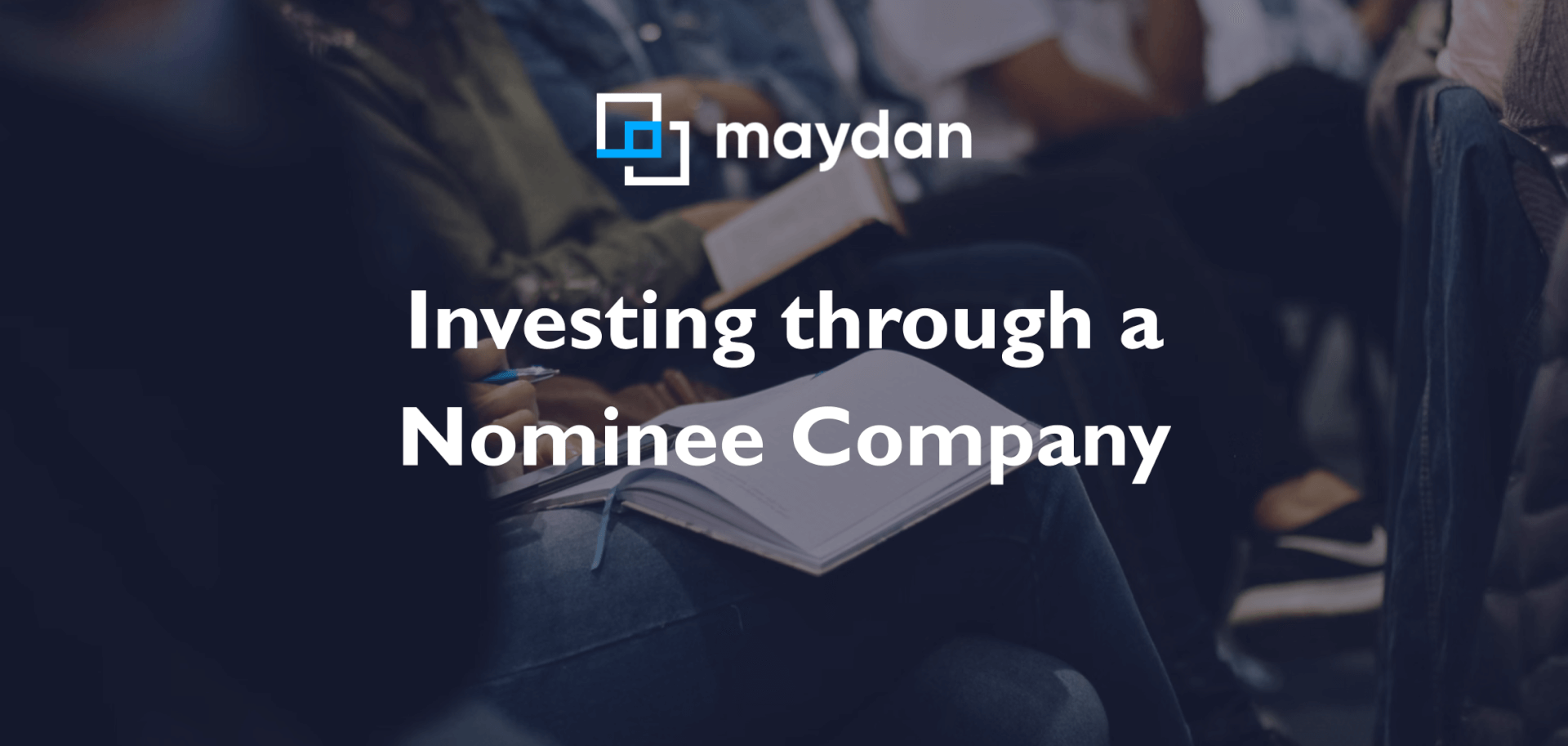Don’t invest unless you’re prepared to lose all the money you invest. This is a high-risk investment and you are unlikely to be protected if something goes wrong. Take 2 mins to learn more.
Investing in Startups via a Nominee Company

Investing in startups
When investing in a startup, there are two ways to become a shareholder: directly and indirectly.
- The Direct Method
When becoming a shareholder directly, an investor becomes the registered/legal owner of the shares. The investor's name appears on the cap table showing the number of shares owned. - The Indirect Method
In the indirect method, the ownership lies with another entity. This is usually a special purpose vehicle (SPV) or sometimes referred to as the Nominee company. In this instance, the Nominee’s name appears on the cap table rather than the individual investor’s name.
What is a Nominee Company?
A Nominee Company is responsible for holding the legal/registered ownership rights in an investment or property on behalf of other entities. These other entities can be angel investors, high net worth investors, retail investors and other companies.
In this type of structure, the nominee company is the registered owner of an investment but the actual owner is the individual making the investment and allowing the Nominee to act on their behalf. This actual owner (investor) is called the beneficial owner.
An agreement between the nominee and the beneficial owners is typically executed to outline the relationship between the Investors and the Nominee.
Maydan Capital
Following best practices in the industry, Maydan uses a Nominee company to invest in startups and investors can invest through this Nominee company.
This means that the Maydan Nominee will hold legal ownership rights in the shares and investments - on behalf of the investors, who remain the actual owners of the investments (governed by the agreement between the nominee and beneficial owners)
This type of arrangement is beneficial as it contains advantages for both startups and investors.
Benefits For Startups
- Administrative Efficiency:
The major benefit for startups in this type of arrangement is the administrative ease that comes with it. Since Maydan will act as a nominee for investors, Maydan will handle administrative tasks such as shareholder rights and other communication reducing the administrative burden for the startup. This drives efficiency as the startup will not have to send various documents and solicit approvals from multiple investors.
At the same time, the startup will have access to the wide range of network and experience of investors through Maydan. This is a win-win situation for startups as they will only have to deal with Maydan for paperwork but still be able to tap into the wide range of investors. - Future Rounds:
Another significant benefit of this type of arrangement is to position the startup as strongly as possible when it comes to raising future rounds of investment.
The world of VC/Private Investing can be really daunting and requires approvals, consents, waivers and actions from all the existing shareholders for the startup to raise an additional round. These shareholders can be scattered throughout different geographies and time zones. Practically speaking, if a financing round requires obtaining approvals from all the existing individual shareholders, this can be a difficult task. Thus, there is a risk that the startup won’t be able to close the round successfully in the time-scale required. Having a nominee instead of dozens of individual investors makes the cap table clean, which is often a requirement for VCs. VCs are reluctant and sometimes unwilling to invest in a company that already has many shareholders (without a nominee) aboard. Having a large shareholder base without any nominee ultimately makes it harder for the startup to raise additional rounds.
The raising of a future round of investments is made much easier by the utilisation of a Nominee structure. - Shareholders Agreements:
When a startup is raising a round, different investors will enter under different commercial terms. The startup has to negotiate these terms and conditions with each investor individually. This requires valuable resources (time and money) that could be used more productively. On the other hand, when the startup is dealing with a single nominee it does not have to negotiate individual agreements but only one single agreement with the Nominee. This saves time and cost not just for the startup but for investors as well.
Benefits for Shareholders/Investors:
Normally, when investing directly, investors in a startup become the registered shareholders. When a startup has a large number of investors, each making their own investment, it can be difficult to predict the large number of practical issues that can arise. Whether it’s attending the AGM or giving an approval or tracking a corporate event, every shareholder is expected to manage their own investments. Doing this without support can be a difficult process for shareholders.
Maydan not only takes care of the administrative side of things (such as attending AGMs or providing approvals) but also tracks and monitors shareholders rights.
Confidentiality:
Another benefit of Nominee structure is confidentiality. It is not unusual for investors, whether Angels or HNWIs or Institutional investors, to want to remain anonymous. This is a perfectly legitimate right that can be exercised by anyone wanting to do so. The reasons could vary from person to person - ranging from personal to professional reasons and from company to company.
For reasons not just limited to the ones explained above, having a nominee structure will allow investors to remain anonymous, protect their rights and avoid administrative uncertainty. It also allows founders/startups to reap the benefits of this structure in many different ways. Ultimately this model is a win-win for both investors and startups alike.